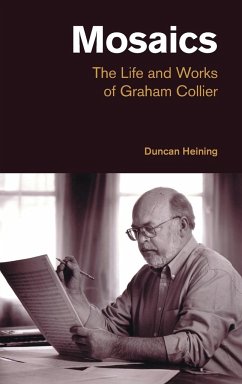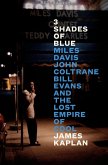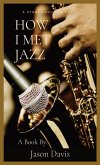Graham Collier's career in jazz lasted over five decades. He was a bassist, a band-leader, a composer, an educator and an author, who wrote extensively about the music. His working life was littered with 'firsts'. Amongst his many achievements, he was the first British jazz musician to study at the Berklee School of music in Boston and the first to receive an Arts Council grant. In 1985, Collier began teaching at the Royal Academy of Music, where he later established the first full-time jazz degree course in the UK in 1987. Mosaics draws extensively on Collier's personal archive, as well as on interviews with fellow musicians, ex-students and colleagues from the Royal Academy of Music. It locates Collier and his work within the social and cultural changes which occurred during his life and, particularly, in relation to developments in British and European jazz of the 1960s and 70s. Collier's work as a composer-bandleader represented an attempt to resolve the paradoxes inherent in jazz between composition and improvisation, familiarity and spontaneity and change and tradition. In this regard, Mosaics compares Collier's work with other composers such as Duke Ellington, Charles Mingus, Gil Evans, Mike Westbrook, Stan Tracey, Barry Guy and Butch Morris. Throughout, Collier emerges as a contradictory figure falling between several different camps. He was never an out-and-out musical, cultural or political radical but rather an individualist continually forced to confront the contradictions in his own position - a musical outsider working within a marginalised area of cultural activity; a gay man operating in a very male area of the music business and within heterosexist culture in general; a man of working class origins stepping outside traditionally prescribed class boundaries; and a musician-composer seeking individual solutions to collective problems of aesthetic and ethical value.
Hinweis: Dieser Artikel kann nur an eine deutsche Lieferadresse ausgeliefert werden.
Hinweis: Dieser Artikel kann nur an eine deutsche Lieferadresse ausgeliefert werden.









